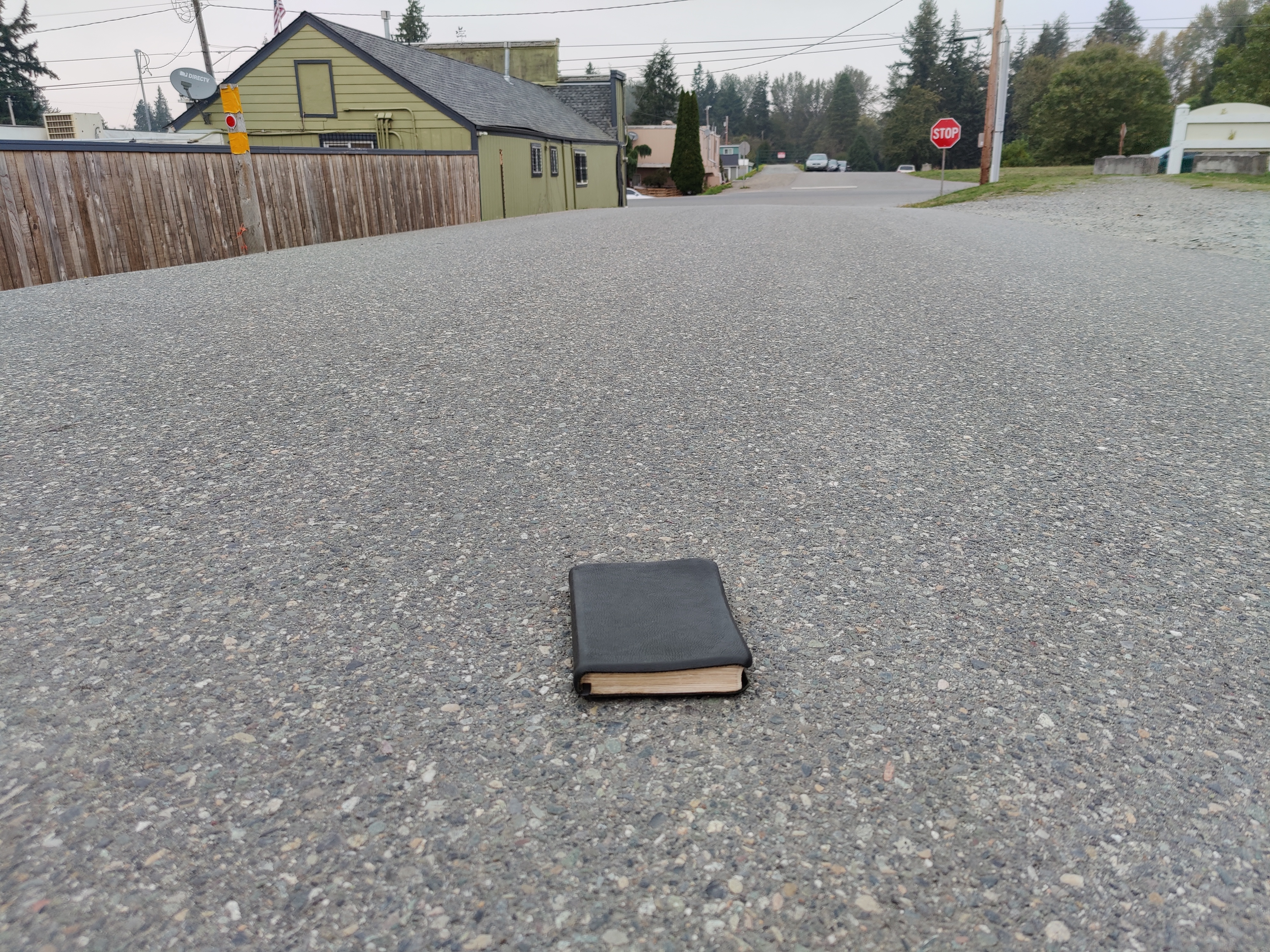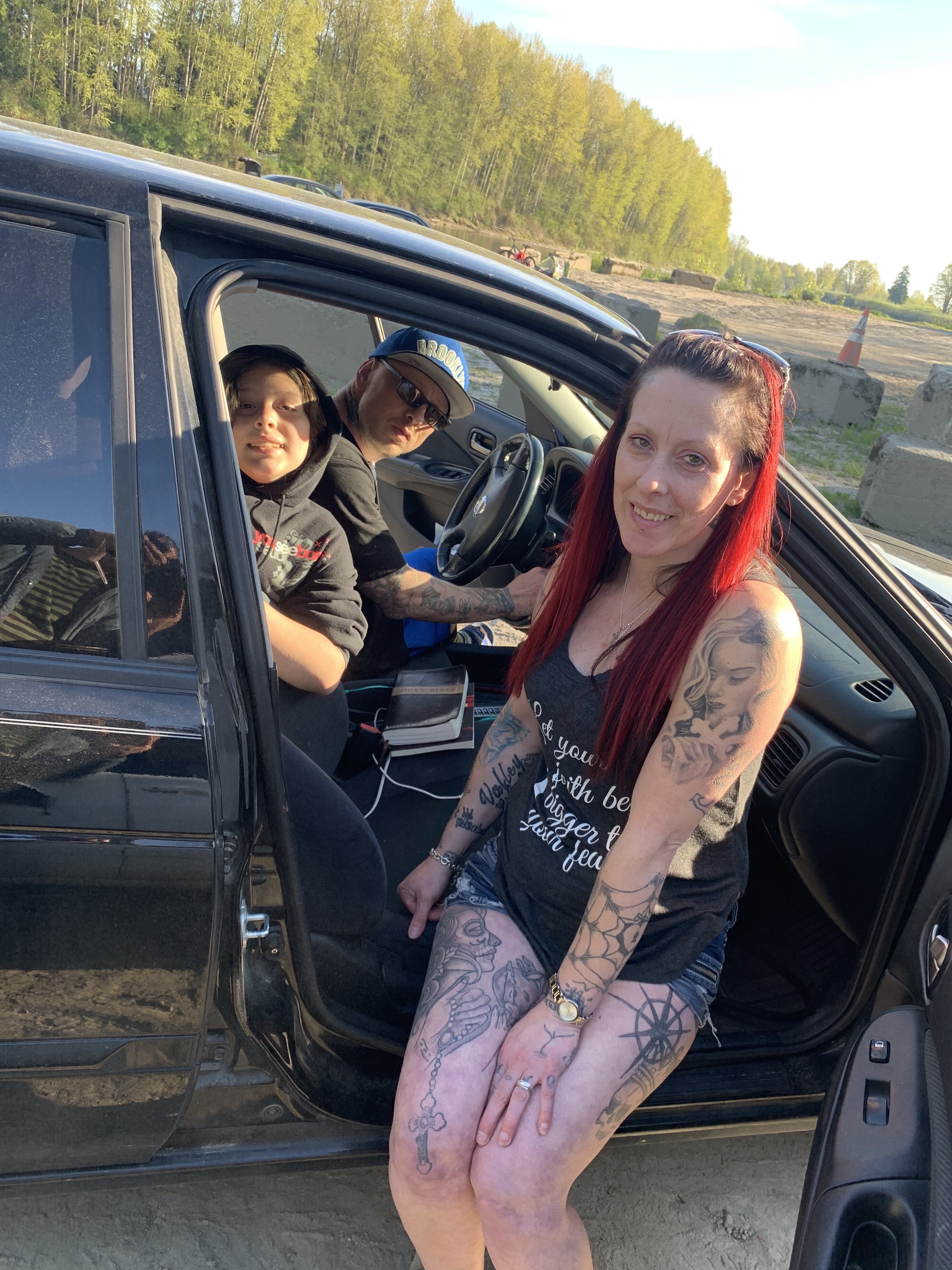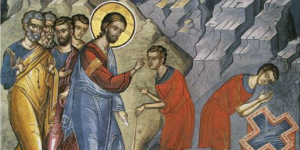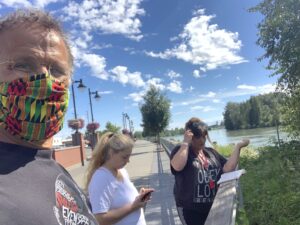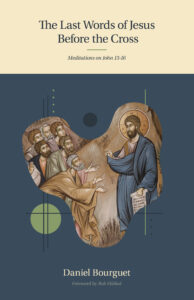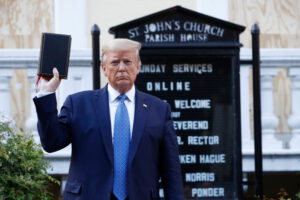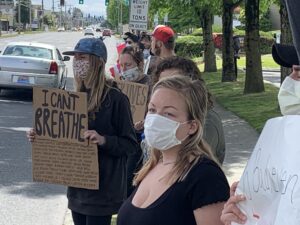 Many people with whom we’re in relationship have suffered from deep rejection and resulting shame. I’ve been leading Bible studies that show how Jesus heals these wounds through his dignifying interactions.
Many people with whom we’re in relationship have suffered from deep rejection and resulting shame. I’ve been leading Bible studies that show how Jesus heals these wounds through his dignifying interactions.
On Thursday evenings I meet for Zoom Bible study with 25 Russian men in a recovery house in Krasnodar. The following day I read the same Biblical text in a park beside the Skagit River in Mount Vernon with whomever shows up. Scripture comes alive in each setting, dispelling the darkness as the Spirit wields it to challenge old mindsets and call us into new ways of being.
Last week we looked at Jesus’ public embrace of Zaccheus, a man who was rejected since he was a hated chief tax collector. He’d become rich through extortion in collaboration with the Roman occupation.
I arrive at Edgewater Park before our 5pm Bible study. I’d heard a homeless encampment of 40+ people had been flooded out due to the Skagit River’s rapid rise from heavy rains and thought I’d try to make contact with some of the people. A group of homeless men and women who’ve set up their tents under a covered outdoor stage tell me how the night before, police and fire department had rescued some and arrested those who had warrants. Rumor had it that everyone had 24 hours to leave the area. People were stressed, not knowing where to go.
In the parking lot I encounter a group of homeless men: Mexican, Native, Black and White. I tell them that our weekly Bible study is about to start, and invite anyone who might be interested to join us. A Native guy approaches me, gesturing with his hands as he speaks with passion.
“I want nothing to do with the Christian religion,” he says. “They built their churches on our ancient burial grounds.”
“There is no excuse for that and I’m totally against that kind of colonizing religion,” I say. “Building a church on burial sites is dishonoring to your people and outright wrong, This country is in fact largely stolen land from Native peoples, established on the backs of slaves trafficked from Africa,” I continue.
The Black man looks at me in surprise and the Native man’s face comes alive and he moves towards me like he’s going to give me a hug. “Hey thanks man. I appreciate you saying that!”
Just then Jessica, one of our Tierra Nueva faith community members, walks up to tell me that the people have arrived for the Bible study. About to head off, I offer some parting words that went something like this:
“The Jesus I follow loves and respects each one of you. He’s cares about your struggles and wants to help you. He’s not allied with the systems that oppress but with people in need of healing and liberation.”
One of the Mexican-American guys says he recognizes me from the jail and thanks me. He puts his hand out towards me as I start to leave, and the others extend their hands. “Bless you man! God bless you!”
I feel very blessed as I walk over with Jessica to her car, parked alongside mine. She’s come with a carload, five young people. The group reflects some of the beautiful diversity of our community: Native, Mexican and White.
We launch right into our Bibles study on Luke 19. I suggest that Felix, a twenty-year-old man play Jesus, and he’s willing. We pretend Zaccheus is up in a tree in front of our cars, and I invite the others to walk towards it to act out the story. Jessica reads the text:
“Zaccheus was trying to see who Jesus was, and was unable because of the crowd, for he was small in stature. So he ran on ahead and climbed up into a sycamore tree in order to see him, for he was about to pass through that way” (Luke 10:3-4).
Stopping before the tree, I ask our little group if they ever find themselves secretly checking out Jesus from a safe distance like Zaccheus—not sure whether they’re ready to follow him yet.
“Maybe you wonder whether he’d accept you the way you are—or require you to stop smoking weed, swearing, or gambling at the casino,” I say, smiling. Felix smirks and others laugh and look at each other.
I invite Jessica to read the next verses.
“When Jesus came to the place, he looked up and said to him, “Zaccheus, hurry and come down, for today I must stay at your house.” And he hurried and came down and received him gladly” (Luke 19:5-6).
I remind our little group that Jesus had a crowd around him—so what he says to Zaccheus is in public. We all look up at the tree against the darkening Winter sky, and Felix tentatively addresses imaginary Zaccheus, inviting him to hurry down so he can hang out at his house. We imagine him rushing down, and I think of the Native man who I thought might hug me.
I share with our group that the word used for “look up” (anablepo in Greek) also means “recover or receive sight.” It is the same word used by the blind man in the previous story when he responds to Jesus’ offer: “What do you want me to do for you?”
“Lord, I want to regain my sight (anablepo)!” he says (17:41). “And Jesus said to him, “Receive your sight (anablepo); your faith has made you well.” Immediately he regained his sight (anablepo) and began following Him
Might Jesus himself be regaining his sight, so to speak, getting recalibrated– receiving a new vision of this rich tax collector, rejected as an extorter/traitor/crook? Jesus, in contrast to the critical crowd literally looks up to Zaccheus before calling him down.
An additional detail that confirms Jesus’ honoring posture is the mention of Zaccheus’ name, rare in Gospel healing stories. In Hebrew Zaccheus literally means “innocent” or “pure.” That Jesus knows his name, and spontaneously and publicly calls this notorious bad guy “pure/innocent,” and then invites himself over to his house seems to touch my little group.
We talk about how this story shows that Jesus sees us positively, from God’s perspective. It makes sense to everyone why Zaccheus would hurry down from the tree and receive Jesus gladly. There from in his hidden vantage point in the Sycamore tree, Zaccheus realizes that he is seen as good.
“Let’s see what the crowd thinks about this,” I suggest, nodding over to Jessica to read the next verse.
“When they saw it, they all began to grumble, saying, “He has gone to be the guest of a man who is a sinner.”
No one is surprised that the crowd reacted this way. We’d seen the week before how the crowd tried to silence the blind man at the entrance to Jericho as he cried out for Jesus to have mercy on him. My Skagit Valley friends have themselves experienced distain from “the crowd”: judgment, rejection, dishonoring, and shaming.
We notice together the huge impact Jesus’ public acceptance has on Zaccheus.
”Zaccheus stopped and said to the Lord, “Behold, Lord, half of my possessions I will give to the poor, and if I have defrauded anyone of anything, I will give back four times as much.”
“How would you feel if you were poor, or one of these people in the crowd who’d been ripped off by Zaccheus?” I ask.
“Getting four times what I lost would help me catch up on some bills,” says Jessica, wryly.
But who might the equivalent of Zaccheus be for us today? I wonder to myself.
I think of people I look down on in today’s toxic political climate: the tax-evading rich and powerful, racial-profiling cops, White supremacists, climate-change deniers, border wall advocates and certain Republicans. The judgmental crowd can be seen rejecting the homeless, addicted, undocumented immigrants, felons, sex-offenders, traffickers, pro-choice advocates, rioters or the Antifa. Or a left-leaning crowd might reject pro-lifers, climate-change deniers, Proud Boys, Trump and his supporters, and gun rights advocates.
Here the judged one responds to Jesus’ radical acceptance with a shocking public declaration of repentance and generous act of reparation. Who could have imagined the hidden innocence, purity and capacity for justice inside this tax collector!
Jesus offers the final word there before the crowd, announcing salvation, re-affirming Zaccheus’ identity and inclusion in God’s community and announcing his (and our) mission:
“And Jesus said to him, “Today salvation has come to this house, because he, too, is a son of Abraham.”
Salvation coming looks like Jesus stopping as he passes through Jericho, receiving sight, looking up to Zaccheus hidden in the tree, and calling him down to host him at his home. Salvation coming looks like the host’s joyous reception of Jesus’ embrace, his willing hospitality to God incarnate, who doesn’t let sin separate himself from “them.” I love these details and want to be part of this movement! And you?
I am personally struck by Jesus’ grace towards the judging crowd, who he includes when he says: “because he (Zaccheus) too (along with the members of the crowd) is a child of Abraham (member of God’s people).
“For the Son of Man has come to seek and to save that which was lost” (Luke 19:9-10).
Little details, like Jesus’ referring to people as “lost,” take the blame and the shame off of them. Jesus embodies and inspires a seeking and finding approach, calling those who have “lost” these excluded ones, to join him on his mission to seek and find. We pray together that we too would receive our sight, to see ourselves and others as Jesus does.
There in the dark under the trees between our cars by the Skagit River we wrap up our time summarizing Jesus’ beautiful mission. We talk about receiving Jesus’ acceptance, and pray together to surrender to his searching love. A young Mexican-American woman who had come for the first time tells me she wants to be baptized, and asks when we could meet up with her and her boyfriend. She and her Yakima Indian partner then show up at our Sunday service in the park in Burlington, and we arrange a time to meet again.
Jesus is alive and active, looking for others to join him! May we too receive our sight, notice who Jesus would have us notice, and become seekers and finders of today’s lost ones.

